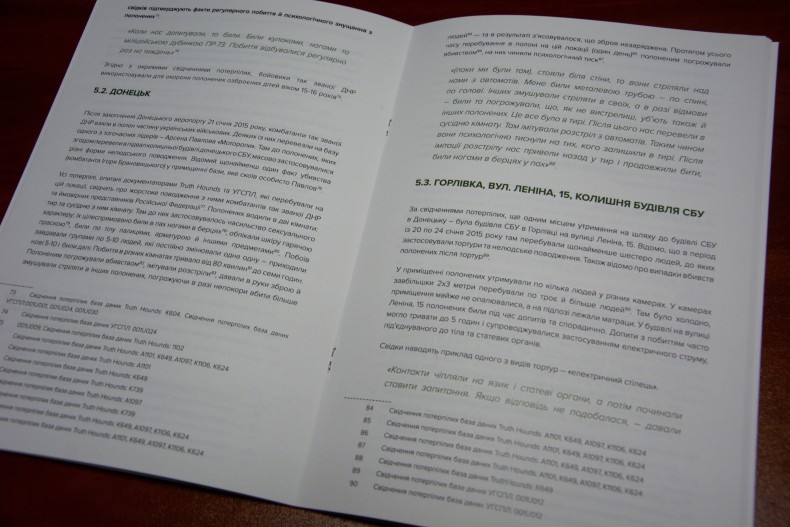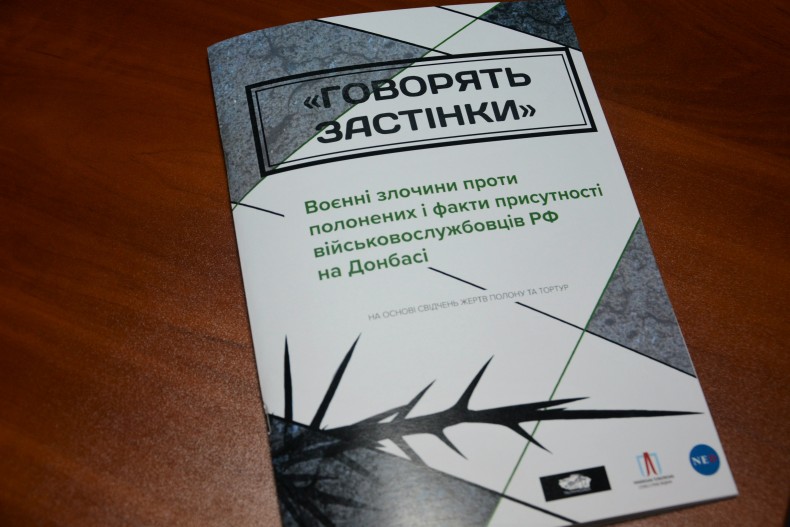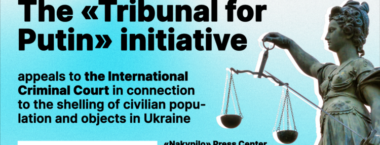On May 15, 2018, UHHRU and Truth Hounds jointly presented in Kyiv the report “When walls talk. War crimes against POWs and presence of Russian soldiers in Donbas”
The report contains proof of the crimes against humanity committed by the separatists of the so-called “DPR” and forces of the Russian Federation in 2014-2015. The information collected will be forwarded to the International Criminal Court.
The report is available on our website
The report provides unequivocal evidence of torture of civilians and Ukrainian soldiers, inhuman and degrading treatment, killing of prisoners, mock executions, recruitment by militants, use of minors for “service” in unauthorized armed forces, as well as acts of sexual violence. Human rights activists also gathered the names of those who should be held accountable for these crimes.


“Instances of inhuman treatment, torture, murder and other crimes are still common in territories controlled by the so-called “DPR” and “LPR”. Regardless of your status, whether you are a solider or a civilian, there’s no guarantee you won’t be subjected to the same treatment,” says Sergiy Movchan, expert of the Ukrainian Helsinki Human Rights Union. He also noted that at the national level, it is necessary to talk about the complexity of investigations, yet, according to the lawyer, Ukraine cannot rely solely on international justice, since “this conflict is considered both international and internal by the ICC. It has the characteristics of both.”
The data regarding the crimes of unauthorized armed forces of the so-called “DPR” and the involvement of Russia’s forces in the conflict in Donbas is based on the testimonies of 138 victims who had been held in captivity in Donetsk, Snizhne, Horlivka and Chystyakove (Torez).
“We believe it is essential to thoroughly and painstakingly investigate all such incidents and bring the perpetrators of international law before an independent and impartial court, ensuring full respect for fundamental rights and fair trial,” says Roman Avramenko, Truth Hounds researcher and chronicler of war crimes.
The study was conducted in partnership with the Civic Solidarity Platform and the Coalition for the International Criminal Court, with the support of the National Endowment for Democracy.





